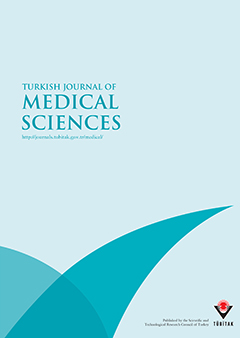Tepetam FM, Örçen C, Özşeker ZF, Duman D, Saraç S. Turk J Med Sci. 2023 Jun;53(3):803-813. doi: 10.55730/1300-0144.5643.
Abstract
Background: Allergic rhinitis can be associated with bronchial hyperreactivity (BHR) and create an increased risk for allergic asthma development. We aimed to investigate the effects of subcutaneous immunotherapy (SCIT) on BHR and asthma development in adult patients with allergic rhinitis.
Methods: The retrospective case-control study was carried out between November 2018 and May 2019 in Süreyyapaşa Chest Diseases and Thoracic Surgery Training and Research Hospital. In this study, data was recorded for patients with a mite and/or grasses/cereals pollen allergy who were tested for BHR before planned SCIT, and who had allergic rhinitis, with or without asthma. The SCIT group was selected as those who received SCIT for at least one year. The control group was selected from those who were scheduled to receive SCIT but were waived and still receiving medication. Symptom scores, prick test results, PC20 levels (methacholine challenge that is a provocative concentration causing a 20% fall in FEV1), and the presence of asthma were recorded and compared with data from at least one year after treatment.
 |
| The preventative effect of subcutaneous immunotherapy |
Discussion: In our real life study we have demonstrated the preventative effect of SCIT on BHR, but not on asthma development.

No comments:
Post a Comment